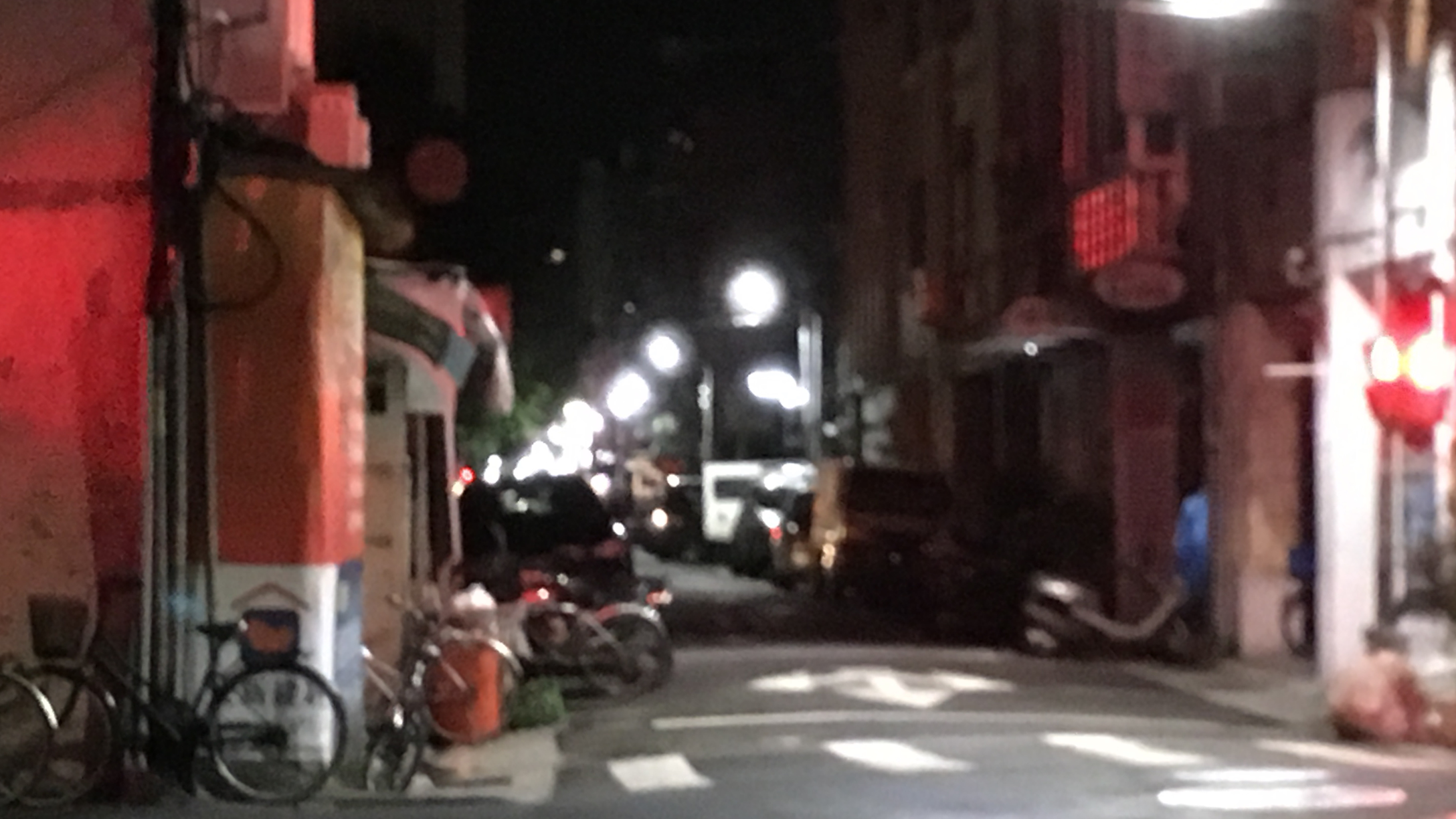Sometimes it’s just the nature of the scam I find interesting.
Around the time I started writing for Popula, there was a cryptocurrency-themed bar that opened up in my old neighborhood. The sign out front claimed that the owner was looking to develop a new cryptocurrency, but did not have the necessary skills. Opening a bar was their way of meeting the people who did.
The sign read, “Cryptocurrency Research Center,” so it wasn’t even immediately clear that this was a bar. Also, for some reason, the sign was partly in Korean.
I never learned why the owners of this bar wanted to start a new cryptocurrency, or what the Korean connection was. But thinking that their story might make a good article I wandered in one night, dressed as though I had just gotten off of work from an office job. I pretended to be an average young salaryman living in the neighborhood—someone with a passing interest in cryptocurrency, but not too knowledgeable about it—curious, and in need of a drink. In other words, I went in pretending to be an easy dupe.
The bar, which had been a small fried chicken place before it became a bar, had different cryptocurrency-themed cocktails—literally named after different cryptocurrencies, with names like “The Bitcoin,” ‘The Ripple,” “The Litecoin,” etc.—but almost no clientele. The bartender, too, proved surprisingly tight-lipped, though he did say that they hoped the bar would become a place where people could meet to conduct crypto trades in person. (At the time, cash-for-crypto transactions were still possible via services like LocalBitcoins, and it was certainly safer to conduct in-person transactions in public; nowadays regulators in various countries are cracking down on such trades.) They were unable to explain any of this in a way that persuaded me that this wasn’t somehow a scam, though.
I dropped by a few more times, but didn’t get much out of them. The bar closed a few months later, with few signs of ever having had any business.

The overly chatty auntie who owns the hair salon next door claims they were gangsters. She tells me she saw fights break out outside between large groups of men, and shady-looking women who looked like “women of the night” inside the bar. This hair salon auntie also seemed like a somewhat unreliable narrator.
I sometimes would smell burning ketamine in the area when I passed by—it’s a common street drug in Taiwan—but I was never sure if it was coming from the bar or not. In any case, I ended up writing about the dogs and cats in the neighborhood and some of the odd local characters instead.
The thing I find generally fascinating about scammers is that many of them appear to believe their own scams. Most of them have rationalizations and explanations for their actions. Only rarely does one meet with such a person who is one hundred percent cynical, who knows that they are lying and simply has no remorse or qualms about it.
I have a lot of patience with scammers who seem to be caught up in their own scams, but those moments of absolute cynicism, when they break through, just really tick me off—that moment when a scam artist realizes you’re not going to fall for it, but you’re still willing to make small talk—and they’re not.
One time in 2013, when I was living in Sanchong—now part of New Taipei City, but formerly its own city—I met a group of American Mormon missionaries. I wouldn’t have expected to run into any westerners in the place where I ran into them. It was next to a post office, as I recall, past a partly-abandoned mall, past this street stall that always had a half-dozen semi-stray dogs camped outside, and across from an elementary school where the kids had stuck a paper cut-out man to the underside of a bridge and set up a shrine to him, as though he were some kind of god.

The missionaries spoke to me in Mandarin, though I remember one of them seemed to stumble over her own name (which she said in English—it was something like “Harmony,” “Grace”, or “Joy”), which made me suspect it probably wasn’t her real name. They told me their church was a place where I could learn English.
“Oh, I already know English actually. Hey, I’m from New York, where are you from?”
The look of disappointment on their faces is something I remember even now. Though I wasn’t about to join their church anytime soon, I was still willing to talk. But clearly, they just wanted me to get going so they could wait for a non-English speaking Taiwanese person to come along in order to offer them English lessons. I think that’s how they lure people in, since so many people want to learn English in Taiwan, but English classes can be pricey.

That’s something that gets me angry, all right. A lot of missionaries strike me as coming to Taiwan just to drag confused Taiwanese people in for some allegedly beneficial purpose, and then to accumulate as many conversions as possible. It’s quite colonial.
Another time, I disappointed some kind of direct-sales cult scammer in a similar way.
I was drinking with a friend at Revolver, a rock bar. We started talking to this middle-aged man with long hair, who expressed interest in the magazine I had helped found. He claimed to be the owner of a store. He brought up Pots Weekly, a left-wing countercultural publication, long since out of print. He said he’d particularly liked their strong focus on migrant workers’ issues and how they were critical of both major political camps in Taiwan. He seemed pretty chill to me, so we exchanged contact info.

A few days later he messaged me on Facebook, inviting me to his store. I figured that he probably wanted to write an article, or contribute in some way to my publication.
He turned out to be a member of a direct-sales organic healthcare cult; it was their mission, he said, to spread organic healthcare products globally. The environment was being destroyed from the waste from non-organic healthcare products washing into the ocean. This was a circular economy, he claimed. They sold products to their friends, who would become convinced, then get in on selling products to their friends. It sounded like a literal pyramid scheme. So long as they met a quota and kept this up, they wouldn’t have to work ordinary jobs. He had long since quit his job to do this full-time. And he wanted me to join as well!
He told me this in the multistory complex that this direct sales cult owned in Songshan, in eastern Taipei. The first floor was a store for their organic healthcare products, and the second floor was the coffee shop where we were sitting. The walls were decorated with photos of high-ranking members of the group, the individuals who had achieved the highest sales.
I said I wasn’t interested, that the life of a freelancer was rough, but I was fine with how it was. I didn’t want to ruffle any feathers so I didn’t exactly call him out, but I did say that I didn’t entirely buy his claims, either with respect to the environment or to his compensation.
After that, he was done talking to me. Once again, I was fine with prolonging our talk for a while, but he just wanted me to move on so he could target his next mark. Okay then. I extricated myself from the conversation and made my way out.
On the bus home, I messaged my friend, asking him if he’d also been approached with the same spiel. He hadn’t. I felt a bit insulted; apparently I had been taken for an easy mark. Probably this guy had been tailoring what to say to me from the beginning, saying things about politics and publishing, things designed to get me to like and trust him.
I Googled the name of the direct sales group. It was an American company, owned by a billionaire, a Republican mega-donor who had filed a number of large-scale lawsuits to silence critics. Go figure. How this company had gotten into Taiwan, I have no idea. It owns more than one multistory complex in Taipei. But when I Google the name of that group now, all the negative press seems to have been scrubbed.
Maybe I want to believe that scammers aren’t all cynical tricksters, that they’re just deluded themselves, they’re caught up in the lies they’ve woven, and that they’re not really bad people. Still, there are some pretty bad people out there. Maybe I just want to hope there are fewer of them than there really are. Or maybe I just feel insulted when people don’t want to make small talk with me. Which is ironic, since I’m always getting irritated with people trying to engage in conversation when I’m busy.





